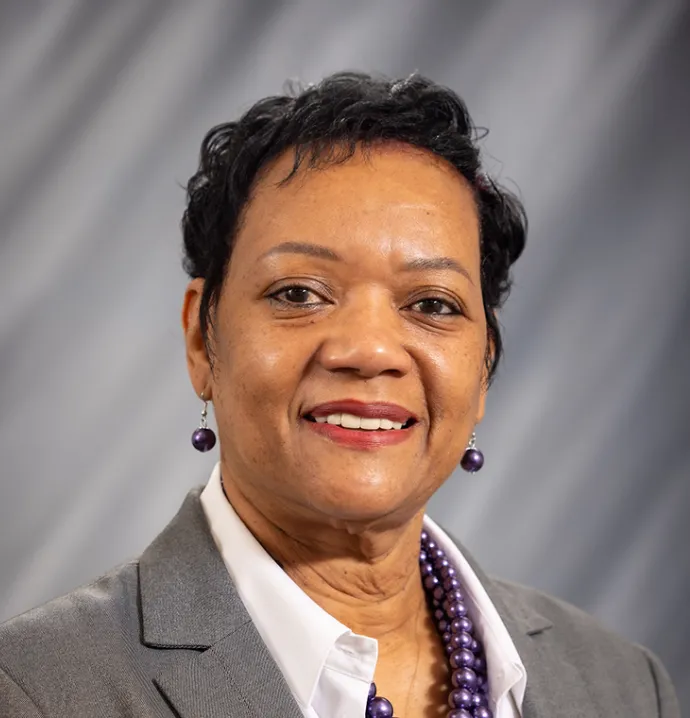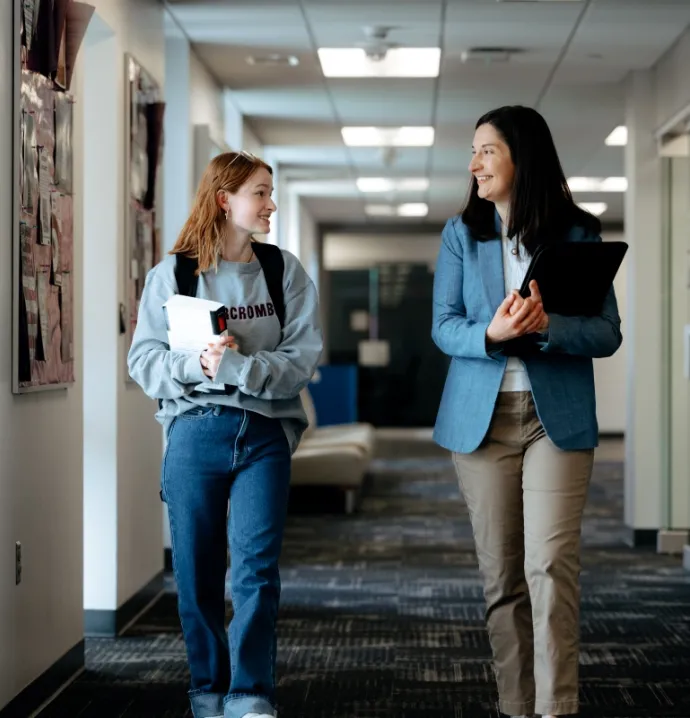Creating change on campus
Creating change on campus
The University of Northern Iowa is creating change on campus, and faculty, staff, and students are working together to make it happen. This past fall, President Nook announced twelve action items to address needs, challenges, and opportunities expressed by the campus community. Six were announced in the spring 2020 semester and included a call for more accessible information on financial aid for low-income and first generation students, options and resources for reporting bias on campus, and an assessment of mental and physical healthcare resources to meet the needs of students from non-Western cultures, among others.
“While our fall semester may be most remembered for COVID-19, we also need to remain vigilant in our effort to create change and ensure our campus community is truly welcoming, equitable, and inclusive,” said UNI President Mark A. Nook. “While our efforts must be focused on systemic change over the long-term, these initiatives advance immediate, sustained progress in our commitment to student success.”
Six more action items were assigned for the fall. They included a new campus space for private religious observances, a comprehensive gender and sexual harassment prevention training program and an initiative to provide dress clothes for interviews to students unable to afford them. These are all part of an array of projects that build upon UNI’s commitment to diversity and inclusion.
“We are creating change together,” said Andrew Morse, Assistant to the President for Board and Governmental Relations at UNI, “This past fall, 25 faculty, staff and students came together to create these resources for students out of a common thread of care for every member of our campus community.”
Perhaps the most visible outcome of UNI’s commitment to diversity and inclusion issues was the creation of the President’s Council on Inclusion, Transformative Social Justice and Advocacy, a closely watched 18-member committee tasked with breaking down barriers to equality that is being led by Jamie Chidozie, director of diversity, inclusion and social justice.
Work has also begun on an “organizational inventory” of UNI’s strengths and weaknesses on diversity issues. Overall, the committee’s work will focus on four areas - UNI’s budget, the number of diversity positions on campus, faculty and staff support, and the curriculum across the university, she said.
“This process is really about looking inward as a university and identifying our flaws and where we need to improve,” Chidozie said. “We’re off to a good start.”
Chidozie also recently launched “The Purple Couch Courageous Conversations,” a series of public discussions about equity and social justice on UNI’s campus.
Beyond the committee’s work, departments across campus have moved forward with important projects this fall.
The Division of Student Affairs and Northern Iowa Student Government are partnering to complete a proposal to enhance student access to professional clothing resources for those with limited incomes. The Professional Clothing Task force consists of five staff members and five students, who are currently researching the logistics of how UNI would collect and distribute professional clothing. The group will deliver a recommendation to the UNI senior leadership in the spring of 2021.
“We know our employers often have an expectation that candidates for internships and full-time jobs are dressed professionally for the interview,” said Robert Frederick, director of Career Services. “We are looking forward to researching and developing new resources to ensure that all students are prepared for the transition to the world of work.”
The NISG also partnered with Facilities Management to identify a temporary space that would be dedicated for reflection and meditation for the campus community. The team eventually chose a space behind Chat’s in Maucker Union that previously served as a reservable meeting room.
“There are members of our campus community who are looking for privacy for religious practices such as prayer or other specific observances that occur during the day,” said Mike Bobeldyk, director of Student Life and Event Services. “It is also being used as a space where people can ‘disconnect’ from daily activities and allow for an opportunity to recenter before moving on with their day. The students I have talked with have found the space extremely helpful in managing their mental well-being.”
Work is continuing to determine if the Meditation Room, or possibly another location on campus, will serve as the long term space dedicated to supporting the campus community.
Several other projects and initiatives also made progress this fall.
- Another task force was formed in the summer of 2020 to develop plans for a comprehensive gender and sexual harassment prevention and upstander intervention training program for incoming first-year students. The task force is continuing to look at programming to supplement the current online training first-year students receive.
- The Division of Student Affairs and NISG developed an online resource for students to receive information and referrals for protection from negative off-campus housing experiences. The webpage provides helpful questions to ask before signing a lease, safety features to look for in a unit and signs of housing discrimination.
- Facilities Management also evaluated a snow removal route proposed by students in partnership with Student Accessibility Services to enhance accessibility to campus buildings, particularly during extreme weather conditions.
- President Nook and members of his cabinet engaged in a professional development workshop facilitated by CoopLew to reinforce best practices in leading and facilitating change for a truly diverse, equitable and inclusive living, learning and working environment.
Work on many of these programs will continue into the spring as UNI and beyond.
“We are committed to change, and we are hard at work to make UNI a place that is more welcoming to all,” Nook said. “We want all of our students to have the same opportunities to receive the education that will help them flourish.”
A full summary of the action items can be found here: https://committees.uni.edu/dei-action-items




